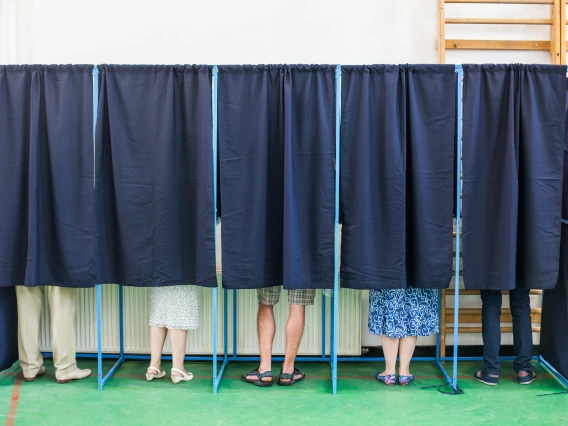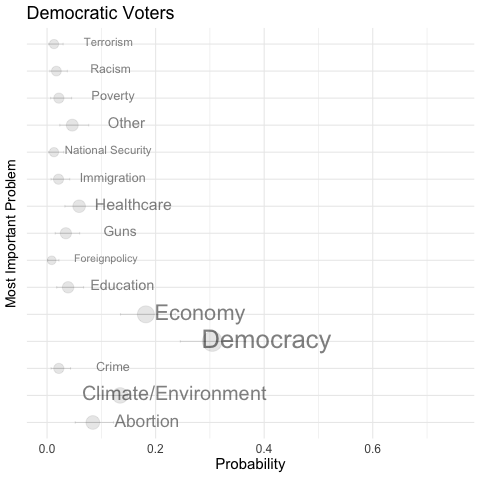Public Opinion in Arizona
The Arizona Voter Survey
The Arizona Voter Project, in collaboration with the Arizona Policy Lab at the University of Arizona, regularly conducts survey based research. Below we report on one of our efforts, the Arizona Voter Survey. The Arizona Voter Survey is a scientific survey of "likely voters" in Arizona. The sample was constructed to mirror the population of voters who participated in Arizona elections.

Public Policy Opinion
Explore voter opinion on key policy areas including water, abortion, immigration and more.

Elections and Democracy
Examine voter opinions on topics related to contesting elections and democracy.

Politicians and Parties
View voter ratings of Arizona's politicians, political parties, and key groups.
Arizonans' Views on Key Issues
Use this area to explore results from the Arizona Voter Survey, which is designed to be run annually and measure the opinions of Arizona voters on a variety of matters related to policy, politicians, key groups, and other critical matters to the state.
Survey and Research Highlights
Most Important Issues by Party
Using data from the Arizona Voter Survey, we can track how issue preferences differ by party. We use a survey instrument known as the "Most Important Problem" question. Respondents in the survey were provided a list of 12 policy areas, with the following prompt, "In your opinion, what is the most important problem facing the United States?" In the plot, we show the relative weight attached to each policy area, for Democrats, Independents, and Republicans in Arizona.


